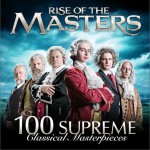标签:
专辑文案:(声明:文案均由授权方提供,并不表示一听赞同其立场或观点)
On the surface, the Third (1922) and Sixth (1947) Symphonies by Ralph Vaughan Williams (1872-1958) could not contrast more starkly. Subtitled "Pastoral," the Third appears to exemplify the notion of "English music" as a low-key celebration of rural lifeways and folk-song in dialect; the rather more abstract Sixth seems to be the eruptive reaction of an aging philosopher to the state of perpetual, institutionalized war ("Cold War") that followed the victory over Germany and Japan in 1945. The Third undulates quietly in minor modes while the Sixth explodes with dissonance and violence. Consider, however, the fourth-movement Finales of both symphonies: Each proceeds quietly, rarely rising above "piano" in the dynamic indications; both equivocate between major and minor and ultimately seem to revert to minor mode. Vaughan Williams made it clear that the Finale of the Third commemorated his service in the Ambulance Corps in France in World War I, and can certainly strike the listener as elegiac in tone; commentators imputed to the Finale of the Sixth the notion that it depicted a world blasted and depopulated by atomic weapons. Vaughan Williams denied this, but only by quoting Prospero's oblique acknowledgment of mortality from Shakespeare's "The Tempest": "We are such stuff as dreams are made on and our little life is rounded in a sleep." In fact, the Third and Sixth Symphonies belong to a single aesthetic, one in which the salient event is the disappearance of old ways of life having to do with the immemorial rhythms of the countryside. It makes sense, then, to couple these two symphonies, as Kees Bakels has done in his Naxos survey of the Vaughan Williams symphonies. The benchmarks against which new recorded performances must compete are the recordings by Sir Adrian Boult, who set down the Sixth as early as 1949 and made the first recording of the "Pastoral" in the early 1950s. Bakels has a more supple way with these scores than Boult, who could be wiry and stiff (although powerful and forthright). As the Boult interpretations become scarce, Bakels' newer, better sounding, and considerably less expensive readings become more attractive. His Third is lean and modern and yet movingly nostalgic when the wordless soprano joins the orchestra in the Finale. He calculates the performance to deemphasize the work's association with gentler scores like the "Norfolk Rhapsody" or "The Lark Ascending." Bakels' Sixth, while slower in the First Movement than the original 1949 recording under Boult, manages to be even more bellicose and cataclysmic. Save for the Finale, all of movements take longer under Bakels than under Boult, but this results in no slackening of the tension. Fine performances in fine sound.
本专辑因版权原因或者内容问题不提供试听与下载.
专辑《Symphonies nos. 3 and 6》的歌曲列表
| 序号 | 歌曲 | 播放 收藏 歌词 下载 |
| 01 | 01 | |
| 02 | 02 | |
| 03 | 03 | |
| 04 | 04 | |
| 05 | 05 | |
| 06 | 06 | |
| 07 | 07 | |
| 08 | 08 |
古典音乐的精选专辑
-
 瓦格纳盛宴 ——纪念瓦格纳诞辰200周年 播放整张专辑 2014-09-19
瓦格纳盛宴 ——纪念瓦格纳诞辰200周年 播放整张专辑 2014-09-19 -
 Dvorák: Piano Quintet Op. 81 / String Quartet Op. 96 德沃夏克:钢琴五重奏 Op81/弦乐四重奏 Op96 播放整张专辑 2013-07-05
Dvorák: Piano Quintet Op. 81 / String Quartet Op. 96 德沃夏克:钢琴五重奏 Op81/弦乐四重奏 Op96 播放整张专辑 2013-07-05 -
 Heinrich Schütz Edition 播放整张专辑 2013-07-15
Heinrich Schütz Edition 播放整张专辑 2013-07-15 -
 2013维也纳美泉宫夏季音乐会 播放整张专辑 2013-06-19
2013维也纳美泉宫夏季音乐会 播放整张专辑 2013-06-19 -
 尼伯龙根的指环•精选 Der Ring des Nibelungen THE HIGHLIGHTS 播放整张专辑 2013-05-22
尼伯龙根的指环•精选 Der Ring des Nibelungen THE HIGHLIGHTS 播放整张专辑 2013-05-22 -
 100 Supreme Classical Masterpieces: Rise of the Masters 播放整张专辑 2010-11-30
100 Supreme Classical Masterpieces: Rise of the Masters 播放整张专辑 2010-11-30 -
 帕海贝尔:卡农绝赞 播放整张专辑 2013-03-22
帕海贝尔:卡农绝赞 播放整张专辑 2013-03-22 -
 醉笛 播放整张专辑 2013-03-18
醉笛 播放整张专辑 2013-03-18









